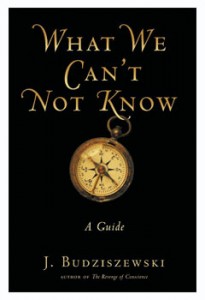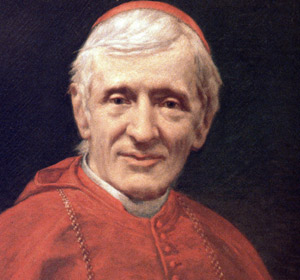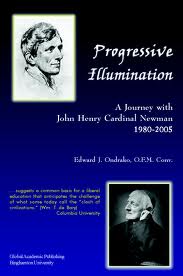Episode 5 -Listening For Truth–  The Reality of Our Conscience.  What it is and what it isn’t.  The importance of proper formation…through the sacramental life, the Catechism of the Church and Sacred Scripture.  “Follow the Truth” is the beginning of the conversation, not “follow your conscience” in order to make the sacred decision.  Not to be passive but teachable is the goal.  The Marian deposition is the the model for moral formation.  Conscience is the judgement of the mind as it listens to the voice of Christ through the lives of the saints, the sacraments, the Catechism and Scripture in prayer.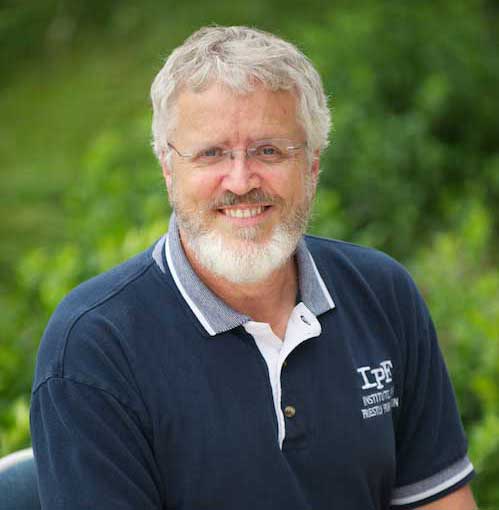
[powerpress]
Deacon James Keating, PhD., the director of Theological Formation for the Institute for Priestly Formation, located at Creighton University, in Omaha, is making available to â€Discerning Hearts†and all who listen, his series of programs entitled “Listening For Truthâ€.
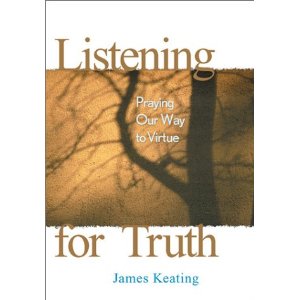 Listening for Truth leads men and women in a search for a fuller experience of God that begins in prayer, grows in the rediscovery of our spiritual being, and grounds itself in the truth of Jesus Christ. A presentation of the Christian life as an engagement of the whole person — body, mind, and soul — in the challenge of daily living.
Listening for Truth leads men and women in a search for a fuller experience of God that begins in prayer, grows in the rediscovery of our spiritual being, and grounds itself in the truth of Jesus Christ. A presentation of the Christian life as an engagement of the whole person — body, mind, and soul — in the challenge of daily living.
For more information on the “Institute of Priestly Formation†and for other material available by Deacon Keating, just click here
Don’t forget to pickup a copy of “Communion with Christ†, it is one of the best audio sets on prayer…ever!
Check out Deacon Keating’s “Discerning Heart†page
Tags: conscience, creighton university, Deacon James Keating, prayer
This entry was posted on Monday, September 9th, 2013 at 8:40 am
You can follow any responses to this entry through the RSS 2.0 feed.
 Episode 12 – Great Works in Western Literature with Joseph Pearce – Mark Twain
Episode 12 – Great Works in Western Literature with Joseph Pearce – Mark Twain
[powerpress]
Mark Twain’s Adventures of Huckleberry Finn is, according to many critics and fond readers, the great American novel. Full of vibrant American characters, intriguing regional dialects and folkways, and down-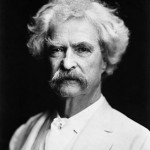 home good humor, it also hits Americans in one of their greatest and on-going sore spots: the fraught issue of racism.
home good humor, it also hits Americans in one of their greatest and on-going sore spots: the fraught issue of racism.
As Huck and Jim float down the Mississippi and encounter all manner of people and situations, and as Huck struggles mightily with his conscience concerning Jim, the novel strongly invites a moral and religious perspective.
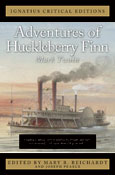 Based on the Ignatius Critical Edition, this series examines, from the Judeo-Christian perspective, the life, the times, and influence of authors of great works in literature .
Based on the Ignatius Critical Edition, this series examines, from the Judeo-Christian perspective, the life, the times, and influence of authors of great works in literature .
Joseph Pearce is currently the Writer-in-Residence and Visiting Fellow at Thomas More College of Liberal Arts in Merrimack, New Hampshire. He is also Visiting Scholar at Mount Royal Academy in Sunapee, New Hampshire. He is also Visiting Scholar at Mount Royal Academy in Sunapee, New Hampshire. He is  co-editor of the Saint Austin Review (or StAR), an international review of Christian culture, literature, and ideas published in England (Family Publications) and the United States (Sapientia Press). He is also the author of many books, including literary biographies of Solzhenitsyn, J. R. R. Tolkien, C. S. Lewis, G. K. Chesterton, and Oscar Wilde.
To learn more about the authors and titles available in the Ignatius Critical Editions
Tags: ave maria university, conscience, humor, ignatius press, joseph pearce, Mark Twain, New Hampshire, oscar wilde, sapientia press
This entry was posted on Friday, August 9th, 2013 at 1:08 am
You can follow any responses to this entry through the RSS 2.0 feed.
USCCA29 Â Chapter 23 Â Life In Jesus part 4
[powerpress]
Archbishop Lucas offers insights on the US Catholic Catechism for Adults Chapter 23:
Conscience represents both the more general ability we have as human beings to know what is good and right and the concrete judgments we make in particular situations concerning what we should do or about what we have already done. Moral choices confront us with the decision to follow or depart from reason and the divine law. A good conscience makes judgments that conform to reason and the good that is willed by the Wisdom of God. A good conscience requires lifelong formation. Each baptized follower of Christ is obliged to form his or her conscience according to objective moral standards. The Word of God is a principal tool in the formation of conscience when it is assimilated by study, prayer, and practice. The prudent advice and good example of others support and enlighten our conscience. The authoritative teaching of the Church is an essential element in our conscience formation. Finally, the gifts of the Holy Spirit, combined with regular examination of our conscience, will help us develop a morally sensitive conscience.
United States Conference of Catholic Bishops (USCCB)
The Most Reverend George J. Lucas leads the Archdiocese of Omaha.Â
For other episodes in the visit our Archbishop George Lucas page
This programs is based on:
More information can be found here.
We wish to thank the USCCB for the permissions granted for use of  relevant material used in this series.
Also we wish to thank Matt Wilkom  for his vocal talents in this episode.
[ezcc]
Tags: Archbishop Lucas, conscience, Jesus, united states catholic catechism for adults, USCCB
This entry was posted on Monday, December 10th, 2012 at 7:42 am
You can follow any responses to this entry through the RSS 2.0 feed.
“Remember always…a tranquil conscience and an assured innocence produce a blessed life”
blessed life”
Saint Ambrose (c. between 337 and 340 – 4 April 397), was a bishop of Milan who became one of the most influential Church figures of the 4th century. Mariologist, heresy buster, emperor tamer, lover of hymns, an answer to a mother’s prayer (ask St. Monica), you name it, St. Ambrose fills the bill…
Did you know that St. Ambrose was one of the first recorded instances of someone reading silently? Interesting…
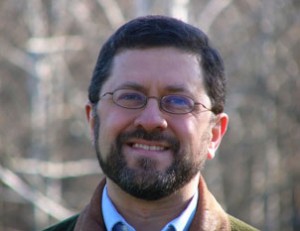 Did you know that he received, essentially, the sacramental Grand Slam all at once? Wonder what that is?
Did you know that he received, essentially, the sacramental Grand Slam all at once? Wonder what that is?
…well let’s ask Mike Aquilina. Take a listen [powerpress]
For a fuller a rendering of his life, visit New Advent
So, so much from St. Ambrose! First, better to hear from the man himself (sort of…)
On Holy Mary
Next on Holy Repentance
A prayer of St. Ambrose
Lord Jesus Christ, I approach your banquet table in fear and trembling, for I am a sinner, and dare not rely on my own worth but only on your goodness and mercy. I am defiled by many sins in body and soul, and by my unguarded thoughts and words.
Gracious God of majesty and awe, I seek your protection, I look for your healing. Poor troubled sinner that I am, I appeal to You, the fountain of all mercy. I cannot bear your judgment, but I trust in your salvation. Lord, I show my wounds to You and uncover my shame before You. I know my sins are many and great, and they will fill me with fear, but I hope in Your Mercies, for they cannot be numbered.
Lord Jesus Christ, eternal king, God and man, crucified for mankind, look upon me with mercy and hear my prayer, for I trust in You. Have mercy on me, full of sorrow and sin, for the depth of your compassion never ends.
Praise to You, saving sacrifice, offered on the wood of the cross for me and for all mankind. Praise to the noble and precious blood, flowing from the wounds of my crucified Lord Jesus Christ and washing away the sins of the whole world. Remember, Lord, your creature, whom You have redeemed with Your Blood. I repent my sins, and I long to put right what I have done. Merciful Father, take away all my offenses and sins; purify me in body and soul, and make me worthy to taste the holy of holies.
May Your Body and Blood, which I intend to receive, although I am unworthy, be for me the remission of my sins, the washing away of my guilt, the end of my evil thoughts, and the rebirth of my better instincts. May it incite meto do the works pleasing to You and profitable to my health in body andsoul, and be a firm defense against the wiles of my enemies.
Tags: Church, conscience, doctors of the church, father of the church, fathers mike, mercy, mike aquilina, Saint Ambrose, st ambrose, st. paul center for biblical theology
This entry was posted on Friday, December 7th, 2012 at 12:21 am
You can follow any responses to this entry through the RSS 2.0 feed.
USCCA28 Â Chapter 23 Â Life In Jesus part 3
[powerpress]
Archbishop Lucas offers insights on the US Catholic Catechism for Adults Chapter23:
Conscience represents both the more general ability we have as human beings to know what is good and right and the concrete judgments we make in particular situations concerning what we should do or about what we have already done. Moral choices confront us with the decision to follow or depart from reason and the divine law. A good conscience makes judgments that conform to reason and the good that is willed by the Wisdom of God. A good conscience requires lifelong formation. Each baptized follower of Christ is obliged to form his or her conscience according to objective moral standards. The Word of God is a principal tool in the formation of conscience when it is assimilated by study, prayer, and practice. The prudent advice and good example of others support and enlighten our conscience. The authoritative teaching of the Church is an essential element in our conscience formation. Finally, the gifts of the Holy Spirit, combined with regular examination of our conscience, will help us develop a morally sensitive conscience.
United States Conference of Catholic Bishops (USCCB)
The Most Reverend George J. Lucas leads the Archdiocese of Omaha.Â
For other episodes in the visit our Archbishop George Lucas page
This programs is based on:
More information can be found here.
We wish to thank the USCCB for the permissions granted for use of  relevant material used in this series.
Also we wish to thank Matt Wilkom  for his vocal talents in this episode.
[ezcc]
Tags: Archbishop Lucas, conscience, Jesus, united states catholic catechism for adults, USCCB
This entry was posted on Monday, December 3rd, 2012 at 3:04 pm
You can follow any responses to this entry through the RSS 2.0 feed.
USCCA26 Â Chapter 23 Â Life In Jesus part 1
[powerpress]
Archbishop Lucas offers insights on the US Catholic Catechism for Adults Chapter23:
Made in the Image of God
The most basic principle of the Christian moral life is the awareness that every person bears the dignity of being made in the image of God. He has given us an immortal soul and through the gifts of intelligence and reason enables us to understand the order of things established in his creation. God has also given us a free will to seek and love what is true, good, and beautiful. Sadly, because of the Fall, we also suffer the impact of Original Sin, which darkens our minds, weakens our wills, and inclines us to sin. Baptism delivers us from Original Sin but not from its effects—especially the inclination to sin, concupiscence. Within us, then, is both the powerful surge toward the good because we are made in the image of God, and the darker impulses toward evil because of the effects of Original Sin. But we should always remember that Christ’s dying and rising offers us new life in the Spirit, whose saving grace delivers us from sin and heals sin’s damage within us. Thus we speak of the value, dignity, and goal of human life, even with its imperfections and struggles. Human life, as a profound unity of physical and spiritual dimensions, is sacred. It is distinct from all other forms of life, since it alone is imprinted with the very image of its Creator.
United States Conference of Catholic Bishops (USCCB).
The Most Reverend George J. Lucas leads the Archdiocese of Omaha.Â
For other episodes in the visit our Archbishop George Lucas page
This programs is based on:
More information can be found here.
We wish to thank the USCCB for the permissions granted for use of  relevant material used in this series.
Also we wish to thank Denise Wharton  for her vocal talents in this episode.
[ezcc]
Tags: catholic social teaching, conscience, Jesus, morality, original sin, sin, united states catechism for adults, USCCB
This entry was posted on Monday, November 19th, 2012 at 12:25 pm
You can follow any responses to this entry through the RSS 2.0 feed.
What a fascinating subject: The Natural Law!  It’s made utterly exciting when talking with Prof. J.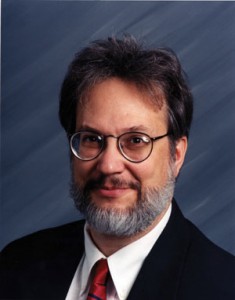 Budziszewski.  He is such a great thinker, and, what’s even better, he helps us to become better thinkers as well.  In “What We Can’t Not Know: A Guide“, Prof. Budziszewski makes the argument for the existence of absolute values of right and wrong  and that are embedded in the conscience of every human being.  And he uses the Ten Commandments as a spring board for various aspects of the discussion.  His book is highly readable and just as HIGHLY recommended!  I can’t wait for his next book.
Budziszewski.  He is such a great thinker, and, what’s even better, he helps us to become better thinkers as well.  In “What We Can’t Not Know: A Guide“, Prof. Budziszewski makes the argument for the existence of absolute values of right and wrong  and that are embedded in the conscience of every human being.  And he uses the Ten Commandments as a spring board for various aspects of the discussion.  His book is highly readable and just as HIGHLY recommended!  I can’t wait for his next book.
Find out more here
Tags: Budziszewski, catholic, catholic podcast, catholic prayer, cathollc spirituality, conscience, HIGHLY, igantius press, J. Budziszewski, natural law, ten commandments
This entry was posted on Monday, July 18th, 2011 at 9:01 am
You can follow any responses to this entry through the RSS 2.0 feed.
 Episode 5 -Listening For Truth– The Reality of Our Conscience.  What it is and what it isn’t.  The importance of proper formation…through the sacramental life, the Catechism of the Church and Sacred Scripture.  “Follow the Truth” is the beginning of the conversation, not “follow your conscience” in order to make the sacred decision.  Not to be passive but teachable is the goal.  The Marian deposition is the the model for moral formation.  Conscience is the judgement of the mind as it listens to the voice of Christ through the lives of the saints, the sacraments, the Catechism and Scripture in prayer.
Episode 5 -Listening For Truth– The Reality of Our Conscience.  What it is and what it isn’t.  The importance of proper formation…through the sacramental life, the Catechism of the Church and Sacred Scripture.  “Follow the Truth” is the beginning of the conversation, not “follow your conscience” in order to make the sacred decision.  Not to be passive but teachable is the goal.  The Marian deposition is the the model for moral formation.  Conscience is the judgement of the mind as it listens to the voice of Christ through the lives of the saints, the sacraments, the Catechism and Scripture in prayer.
[powerpress]
Deacon James Keating, PhD, the director of Theological Formation for the Institute for Priestly Formation, located at Creighton University, in Omaha, is making available to â€Discerning Hearts†and all who listen, his series of programs entitled “Listening For Truthâ€.
Listening for Truth leads men and women in a search for a fuller experience of God that begins in prayer, grows in the rediscovery of our spiritual being, and grounds itself in the truth of Jesus Christ. A presentation of the Christian life as an engagement of the whole person — body, mind, and soul — in the challenge of daily living.
For more information on the “Institute of Priestly Formation†and for other material available by Deacon Keating, just click here
Don’t forget to pickup a copy of “Communion with Christ†, it is one of the best audio sets on prayer…ever!
Check out Deacon Keating’s “Discerning Heart†page
Tags: catholic, catholic podcast, catholic prayer, cathollc spirituality, Church and Sacred Scripture, conscience, creighton university, Deacon James Keating, Deacon Keating, institute for priestly formation
This entry was posted on Thursday, June 9th, 2011 at 8:50 am
You can follow any responses to this entry through the RSS 2.0 feed.
The truth had more value than security and prestige. He stressed a life of virtue. His life would emphasize that both the habits of knowledge, along with  the habits of  virtue, lead to the birth of the habit of right judgement in our lives. Boy now there is the key isn’t it. We can have knowledge…we can have virtue…but are the two truly united, “married” so to speak, to bring about in our hearts and our minds, right judgement. Look around the world today, is there the practice of  “right judgement’? Sound complicated? Not really, it’s at the heart of true and proper discernment. And that’s why Blessed John Henry Newman is a vital saint for today’s world.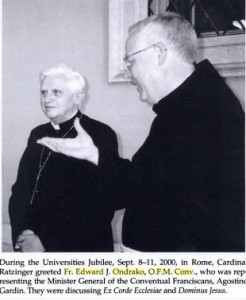
One of the best books I’ve ever read on the teachings of Blessed John Henry Cardinal Newman was “Progressive Illumination”. And one my favorite discussions on his life was with Fr. Edward Ondrako OFM Conv. What’s great about Fr. Ondrako is that not only thinks “Newman”, he prays “Newman. And he shows us how it brings us all to the heart of Christ.
Take a listen to the conversation Bruce and I had with Fr. Ondrako on the Spirit Morning Show
Â
Â
A wonderful book on Blessed John Henry Newman is “Progressive Illumination” by Fr. Ondrako
Tags: catholic, catholic podcast, catholic prayer, cathollc spirituality, conscience, discernment, john henry cardinal newman, john henry newman
This entry was posted on Sunday, September 19th, 2010 at 7:57 am
You can follow any responses to this entry through the RSS 2.0 feed.





